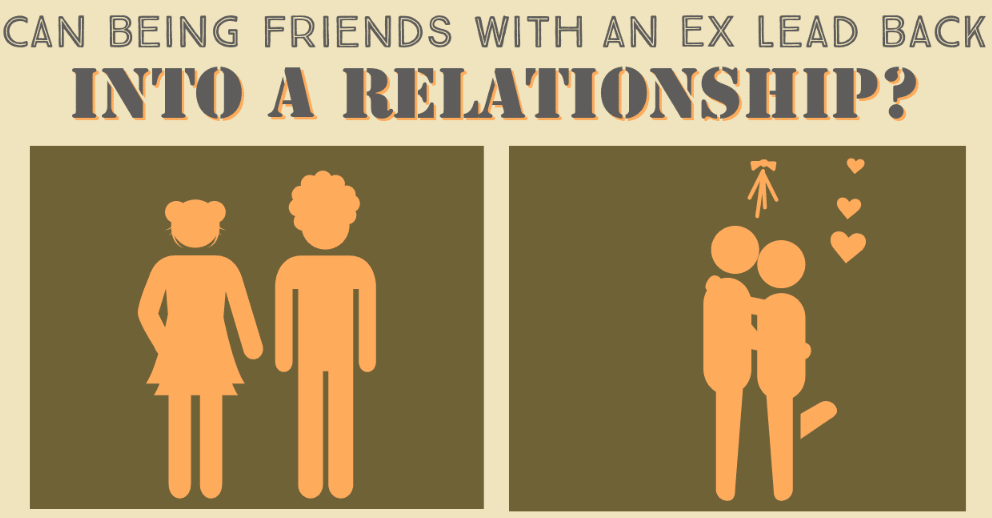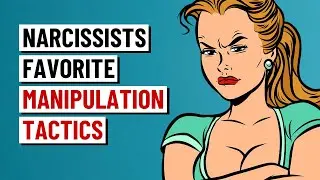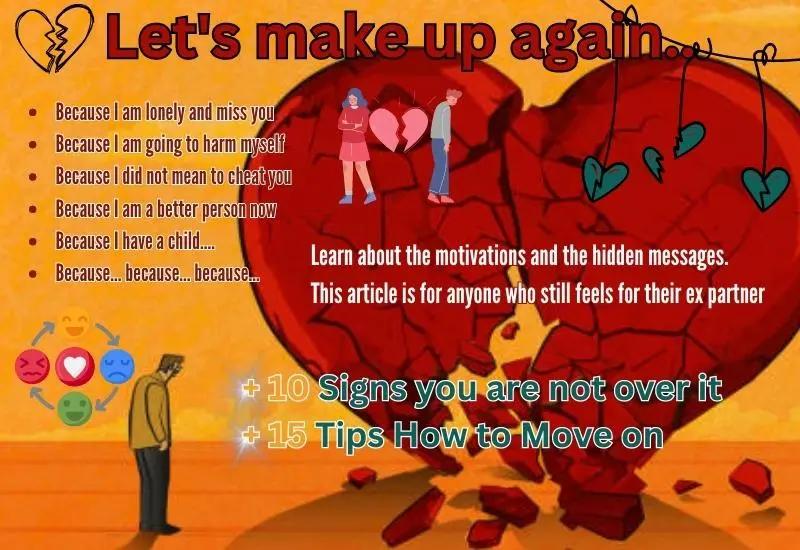Imagine looking at the concept of Reconnect with Ex-Partner with a logical eye, like you’re observing a game of musical chairs. Picture a circle of people dancing around chairs, with one chair taken away each time the music stops. As the rounds go on, one person ends up without a chair, while two others keep battling for the last seat. People outside this circle, who have already lost their chance at a seat, watch as the competition gets fiercer. Those standing outside the circle realize they’re out of the game for good, unable to rejoin. Now, think about breakups and ex-partners – it’s a bit like this scenario, isn’t it?
Introduction to Reconnect with Ex-Partner
In the complex world of human relationships, there’s this intriguing puzzle: why do people go back to their old flames, even when it might not seem to make sense? To figure out what’s really going on, we need to explore the deep mix of feelings, thoughts, and social factors that come together to shape our actions. This article takes a closer look at why people find themselves drawn back to their ex-partners, unraveling the layers of this intricate human behavior.

Psychological Anchoring: The Comfort of the Known
Have you ever wondered why we’re sometimes drawn back to our ex-partners? Well, a fascinating psychological idea called “anchoring” might shed some light on this. You see, our minds have a way of holding onto things that feel familiar and cozy. When we think about past relationships, all those shared experiences, private jokes, and that deep connection we had create a feeling of belonging that’s really hard to find elsewhere. It’s like a warm and comfy blanket for our emotions. This becomes even more noticeable when we’re facing the uncertain world of dating or dealing with big changes in our lives.
Imagine this: you’re out there, trying to navigate the unpredictable seas of the dating scene or going through some major life shifts. In the midst of all that uncertainty, the idea of returning to a relationship that feels familiar and safe can be incredibly strong. It’s like a magnetic force pulling you back to what you know and trust. The comfort of having that familiar presence around is like a soothing balm, making the idea of Reconnect with Ex-Partners all the more irresistible.
The Heart’s Ties: Why We Stay Connected
Ever wondered why we sometimes feel that strong pull to get back with an ex? Well, there’s this thing called attachment theory that dives deep into our emotions and helps explain it. When we’re in a relationship, we form these intense emotional connections. You know, those moments when you let your guard down and really let someone in? Those connections can actually stick around even after the relationship ends.

Think of it like this: the way we connect with someone doesn’t just vanish. It’s like a thread that stays, weaving through our thoughts and feelings. The type of attachment we develop with our partner can shape how we behave, even long after the relationship has ended. Sometimes, that emotional security from the past can feel so strong that it clouds our judgment. We might understand logically why the breakup happened, but those emotional ties can be really hard to break.
So, when we talk about attachment theory, we’re basically talking about why it’s so tough to cut those emotional ties and move on from our exes. It’s like our hearts and minds are in a tug-of-war between what we feel and what we know.
Looking Back and Rewriting Romance
Ever found yourself looking back at the past and feeling a mix of emotions? That’s nostalgia – a feeling that’s like a blend of sweetness and a hint of sadness. It’s a big reason why we sometimes feel that pull towards our ex-partners.
You know how sometimes our minds can play tricks on us? Well, when it comes to old relationships, it’s like we put on these rose-colored glasses. We tend to remember all the great times we had – the laughter, the fun outings, the deep talks – but we conveniently forget the arguments or the tough patches. It’s like we’re rewriting history in a way that makes us feel warm and fuzzy.

This romantic revisionism, as they call it, can be so strong that it makes us want to go back to those good times. We long for that perfect version of the past, even if it’s not entirely accurate. It’s kind of like chasing a dream, hoping to recreate those moments that once made us so happy. But sometimes, in our quest for that idealized past, we might miss the very reasons why the relationship ended in the first place.
Seeking Closure and Resolution
Ever had that feeling like something’s left hanging, unfinished, in the air? Well, when it comes to Reconnect with Ex-Partners this concept of “unfinished business” is a big deal. Think about it – when relationships end, they often leave behind a trail of unresolved stuff. Maybe there were things you didn’t get to say, arguments that didn’t get sorted, or dreams that never got fulfilled.
Now, imagine carrying all that emotional baggage with you. It’s like having a bunch of loose ends that keep tugging at you. And that’s what can make you want to go back – the thought that maybe, just maybe, you could tie up those loose ends and finally get some closure. It’s like this unspoken hope that by reconnecting, you can put those lingering issues to rest.
This hope for resolution can be super powerful. The idea of finally getting to talk about those unsaid things or maybe even achieving the things you once dreamed of can be really tempting. It’s like a magnetic force that pulls you back, making you revisit the past in search of that closure you crave.
Fear of Loneliness: A Void to Fill
Ever had that feeling of not wanting to be alone, like a big dark cloud hanging over you? Well, when it comes to thinking about Reconnect with Ex-Partners, this fear of loneliness is a pretty powerful force. When a relationship ends, it’s like this emotional hole opens up, and it can seem really hard to fill.
Imagine it’s like there’s this big gap inside you, and the thought of being alone makes it feel even bigger. So, sometimes, the idea of going back to someone you know – like your ex – feels like a way to patch up that emptiness. It’s like finding comfort in something familiar, even if it’s not the best choice.

This fear of being by yourself, combined with the resistance to change, can actually mess with your thinking. It’s like these emotions are so strong that they overshadow the reasons why you broke up in the first place. So, you might find yourself wanting to go back to your ex, even if deep down, you know it might not be the healthiest decision.
Looking at Old Connections in a Fresh Way
You know how as time goes on, we kind of change and grow? Well, that change can actually give us a whole new way of looking at our old relationships. When we go through breakups and start to figure ourselves out, we become more aware of who we are and what we want.
Picture it like this: after a breakup, we start seeing things in a different light. We begin to understand why things happened the way they did, what led to the problems, and how we contributed to it all. It’s like we suddenly get this clear view of the whole picture.
This change in perspective can make us curious about our past relationships again. Maybe we see things we didn’t before, or we realize that we’ve grown in ways that could make things work better this time around. It’s like having a newfound wisdom that sparks the idea of giving it another shot, armed with all the lessons we’ve learned along the way.
Reconnect with ex-partners (Y/N)
Reconnect with ex-partners isn’t as simple as it seems – it’s a mix of feelings, memories, and how we’ve changed over time. Even though some people might not get why we do it, there’s actually a whole bunch of things that make us consider it.
Think about it: it’s like a puzzle with lots of pieces. One piece is that feeling of comfort we get from something familiar. Then there’s those deep emotional ties that still tug at our hearts, making it hard to let go. Plus, there’s that longing for things to feel complete, to sort out what was left unfinished. All these things together create this strong ull that brings us back to our exes.
It might seem a bit puzzling, but if we take a closer look, it all starts to make sense. When we understand why we’re drawn back to our past relationships, we get a better glimpse into the intricate world of human connections. It’s like understanding the different layers of a complex love story and how we grow through it all.
But what if you are in another relationship?
When people decide to Reconnect with Ex-Partners, it can be a complex and emotionally charged situation for the person who was in the relationship with them. This scenario often stirs up a range of emotions and challenges that they must navigate. Here’s a look at what might happen:
- Emotional Turmoil: The person who was in the relationship might experience a mix of emotions, including confusion, hurt, anger, and sadness. They might feel blindsided by their partner’s decision to Reconnect with Ex-Partner and grapple with feelings of rejection or inadequacy.
- Questioning Self-Worth: This situation can lead the person to question their own self-worth and value. They might wonder why their partner chose to go back to an ex instead of continuing their relationship together.
- Doubts and Insecurities: The individual may start questioning the authenticity of their previous relationship. They might doubt whether their partner’s feelings were genuine or if there were underlying issues they were unaware of.
- Uncertainty about the Future: The person left behind may feel uncertain about their own future, especially if they had invested a significant amount of time and emotion into the relationship. They might need to reimagine their life without their previous partner and navigate the process of healing and moving on.
- Rebuilding Trust: If the person who went back to their ex decides to return to the current partner once more, rebuilding trust can be a significant challenge. The person who was in the relationship might need reassurance that the same situation won’t repeat itself and that their emotions won’t be disregarded again.
- Navigating Communication: Open and honest communication becomes crucial during this period. Both individuals may need to express their feelings, concerns, and intentions clearly to ensure a healthy understanding of each other’s perspectives.
- Self-Care and Healing: For the person who was in the relationship, taking care of their emotional well-being becomes paramount. Engaging in self-care practices, seeking support from friends or professionals, and engaging in activities they enjoy can aid in the healing process.

In essence, when someone returns to their ex, it’s not only about their journey but also about the impact it has on the person who was in the relationship with them. It’s a complex dynamic that requires understanding, empathy, and a willingness to address the emotional aftermath that arises from such a decision.
Detecting The signs Your partner wants her old love back
Detecting signs that your partner might be considering going back to their ex-partner can be challenging, as relationships are nuanced and context-dependent. However, some potential indicators might suggest their thoughts or intentions:
- Increased Contact: If you notice a sudden increase in communication between your partner and their ex, it could be a sign they’re reconnecting emotionally.
- Comparisons: If your partner frequently compares you to their ex, whether positively or negatively, it might indicate that they’re still thinking about that past relationship.
- Nostalgia: If your partner reminisces about their past relationship with their ex or frequently brings up shared memories, this could be a sign of lingering feelings.
- Emotional Distance: If your partner starts to withdraw emotionally, becoming less engaged or distant, it might indicate they’re preoccupied with their past or future connections.
- Lessened Investment: Reduced effort in your relationship, like not putting as much energy into spending time together or planning for the future, might be a sign of shifting priorities.
- Defensiveness: If your partner becomes defensive or secretive about their interactions with their ex, it might suggest they’re not being open about their intentions.
- Change in Attitude: If your partner’s attitude towards you shifts, becoming more critical or less supportive, it could indicate their emotional focus is elsewhere.
- Avoidance of Commitment: If your partner avoids conversations about the future or hesitates to commit to plans, it might signify uncertainty about your relationship.
- Loss of Intimacy: A decline in physical or emotional intimacy can be a signal that their emotions are directed elsewhere.
- Rekindled Connections: If your partner spends more time with mutual friends or social circles that involve their ex, this might facilitate renewed interactions.
Remember that these signs are not definitive proof of your partner’s intentions; they could also be indicative of other issues within the relationship. If you notice several of these signs, it’s crucial to have an open and honest conversation with your partner to understand their feelings, concerns, and intentions. Communication is key to addressing any uncertainties or challenges that might arise.
You can also employ manipulative tactics

It’s important to recognize that healthy relationships are built on open communication, mutual respect, and empathy. While some people may employ manipulative tactics to try to regain a partner’s attention or restart a relationship, it’s essential to approach these situations with caution and prioritize your emotional well-being. Here are some behaviors that might indicate manipulative attempts:
- Emotional Blackmail: This could involve threats of self-harm, suicide, or harming others as a means to gain sympathy, attention, or guilt-trip you into staying in the relationship. Remember that this is a serious matter and should be treated with care. If someone you know is expressing these feelings, it’s essential to encourage them to seek professional help.
- Excessive Drinking or Substance Abuse: Some individuals might resort to excessive drinking or drug use to cope with their emotions, garner attention, or to manipulate you into feeling sorry for them. This can be dangerous and is not a healthy way to address relationship issues.
- Playing the Victim: Manipulative ex-partners might portray themselves as victims to gain your sympathy and make you feel responsible for their well-being. This can be emotionally draining and can hinder your ability to move on.
- Extreme Displays of Affection: Some may engage in dramatic gestures, like excessive declarations of love or grand romantic gestures, to appeal to your emotions and make you reconsider the breakup.
- Social Media Ploys: Posting cryptic or attention-seeking content on social media platforms to evoke your concern or curiosity, manipulating you into reaching out.
- Interference with Your Social Circle: Manipulative ex-partners might try to manipulate your friends and family, seeking to gain information about you or spreading rumors to maintain a hold on your life.
- Gaslighting: This involves distorting facts, undermining your perception of reality, or making you question your own feelings and memories to make you doubt your reasons for ending the relationship.
- Constant Communication: Bombarding you with texts, calls, or messages to create a sense of urgency, dependence, or guilt.
- Love Bombing: Overwhelming displays of affection, attention, and gifts as a way to reel you back in.
- Stalking or Intrusion: In extreme cases, an ex-partner might resort to stalking, monitoring your activities, or invading your privacy, which is illegal and emotionally harmful.
Remember, recognizing and setting boundaries against manipulative behavior is crucial for your well-being. If you feel uncomfortable or unsafe, consider reaching out to friends, family, or professionals for support. Prioritize your emotional health and safety above all else.
Don’t be afraid to prioritize yourself
If you feel like you’ve been manipulated or tricked into coming back to a relationship that you didn’t genuinely want, it’s essential to prioritize your emotional well-being and take steps to regain control of the situation. Here’s some advice to consider:
- Assess Your Feelings: Take some time to reflect on your emotions. Are you returning because you genuinely want to, or are you doing it out of guilt, pressure, or manipulation? Being honest with yourself is the first step.
- Set Boundaries: Clearly communicate your boundaries with your ex-partner. Let them know what behavior is not acceptable and what you’re willing to tolerate.
- Seek Support: Reach out to friends, family, or a therapist to discuss your feelings and get an external perspective on the situation. They can provide insights and advice to help you navigate the complexity of your emotions.
- Trust Your Instincts: Trust your gut feeling. If something doesn’t feel right or if you’re sensing manipulation, take those feelings very seriously.
- Practice Self-Care: Engage in activities that bring you joy and relaxation. Focusing on self-care can help you regain your emotional balance and confidence.
- Communicate Directly: If you believe you were manipulated or tricked, have an honest conversation with your ex-partner about your feelings. Let them know that you are aware of the tactics used and express your decision.
- Plan Ahead: If you’re concerned that your ex-partner might continue to manipulate or pressure you, plan how you will handle future interactions or attempts at reconnection.
- Stay Firm: Once you’ve made a decision, stick to it. It’s okay to prioritize your well-being and choose what’s best for you.
- Limit Contact: If needed, consider limiting or cutting off contact with your ex-partner to create distance and reduce their ability to manipulate you further.
- Seek Professional Help: If the situation becomes overwhelming, or if you’re struggling to cope with the emotions involved, consider seeking support from a therapist or counselor who can help you navigate these feelings in a healthy way.
A few last comments to end this article
If you and your partner are dealing with a tough situation where one of you is thinking about going back to an ex, don’t lose hope. There’s a chance to really understand each other, grow stronger, and figure out the right way to move ahead. Here’s something to keep in mind:
- Open Communication: Honest and open communication is the foundation of any healthy relationship. If you’re both willing to have difficult conversations, you can address concerns, fears, and hopes in a constructive way.
- Mutual Respect: Remember that both partners deserve respect and consideration. Recognize that feelings can be complex and that each person’s perspective is valid.
- Self-Reflection: Take time to reflect individually on what you truly want and need from the relationship. This self-awareness can guide your decisions and discussions.
- Professional Help: Seeking couples therapy or individual counseling can provide a safe space to explore feelings, work through challenges, and develop strategies to move forward.
- Time for Healing: Sometimes, taking a break from the relationship can provide the necessary space for healing, personal growth, and gaining clarity.
- Rebuilding Trust: If you decide to move forward together, rebuilding trust might be a gradual process. Patience, understanding, and consistent effort are essential.
- Future Vision: Visualize what you both want for the future of your relationship. Discuss shared goals, values, and aspirations to create a sense of direction.
- Forgiveness: If mistakes have been made, forgiveness can be a powerful step towards healing. Forgiving doesn’t mean forgetting, but it can allow you to release negativity and move forward.
- Healthy Boundaries: Set healthy boundaries that protect both partners’ emotions and well-being. These boundaries can help prevent manipulation or unfair pressure.
- Self-Care: Each individual’s well-being is crucial. Focus on self-care, engage in activities that bring you joy, and cultivate your own happiness regardless of the relationship’s status.
Just like life, relationships have their highs and lows. Even though tough times can feel like a lot to handle, they’re also chances for us to learn and become better. They can help us understand each other more deeply and bring us closer together. By talking openly, being understanding, and sticking by each other’s side, you’re setting the stage for a future where you’re stronger and happier, whether that’s finding your way back together or finding happiness in your own separate ways.
Source: Trust and Intimacy, Gaslighting, Written by Swag.live




